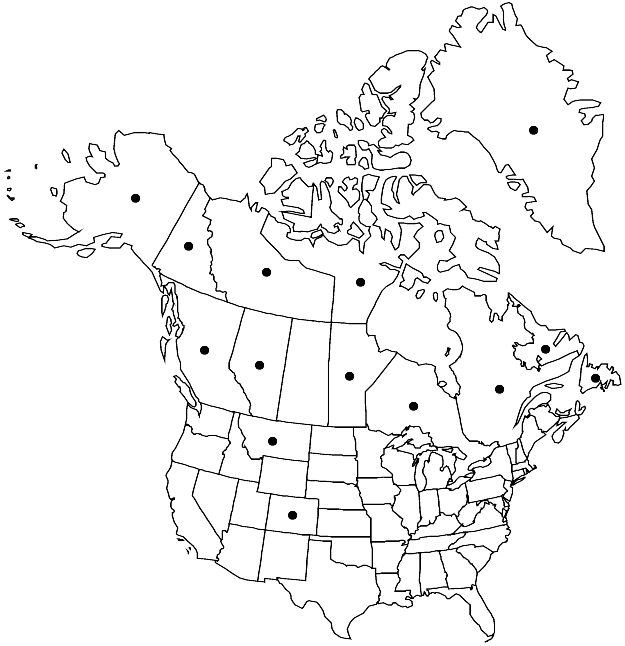Orthothecium chryseum var. chryseum
Treatment appears in FNA Volume 28. Treatment on page 555.
Revision as of 21:38, 5 November 2020 by imported>Volume Importer
Leaves concave.
Phenology: Capsules mature spring–early summer.
Habitat: Moist calcareous rock ledges, faces, crevices, in depressions, edges of streams, humus, seepage areas of talus slopes, ice wedge polygons, hummocks, dung, alpine and arctic tundra
Elevation: low to high elevations (0-3900 m)
Distribution

Greenland, Alta., B.C., Man., Nfld. and Labr., N.W.T., Nunavut, Ont., Que., Yukon, Alaska, Colo., Mont., n, c Europe, n Asia (Russia), Atlantic Islands (Iceland).
Discussion
Variety chryseum is characterized by robust stems 3 mm wide and over 4 cm long, and distinctly golden, plicate leaves with short-acuminate points. This variety is by far the most common Orthothecium in North America. Sporophytes are rarely produced.
Selected References
None.
Lower Taxa
None.
... more about "Orthothecium chryseum var. chryseum"
Moist calcareous rock ledges, faces, crevices, in depressions, edges of streams, humus, seepage areas of talus slopes, ice wedge polygons, hummocks, dung, alpine and arctic tundra +
in P. Bruch and W. P. Schimper, Bryol. Europ. +
1851 +
Illustrated +
Orthothecium chryseum var. chryseum +
Orthothecium chryseum +
variety +